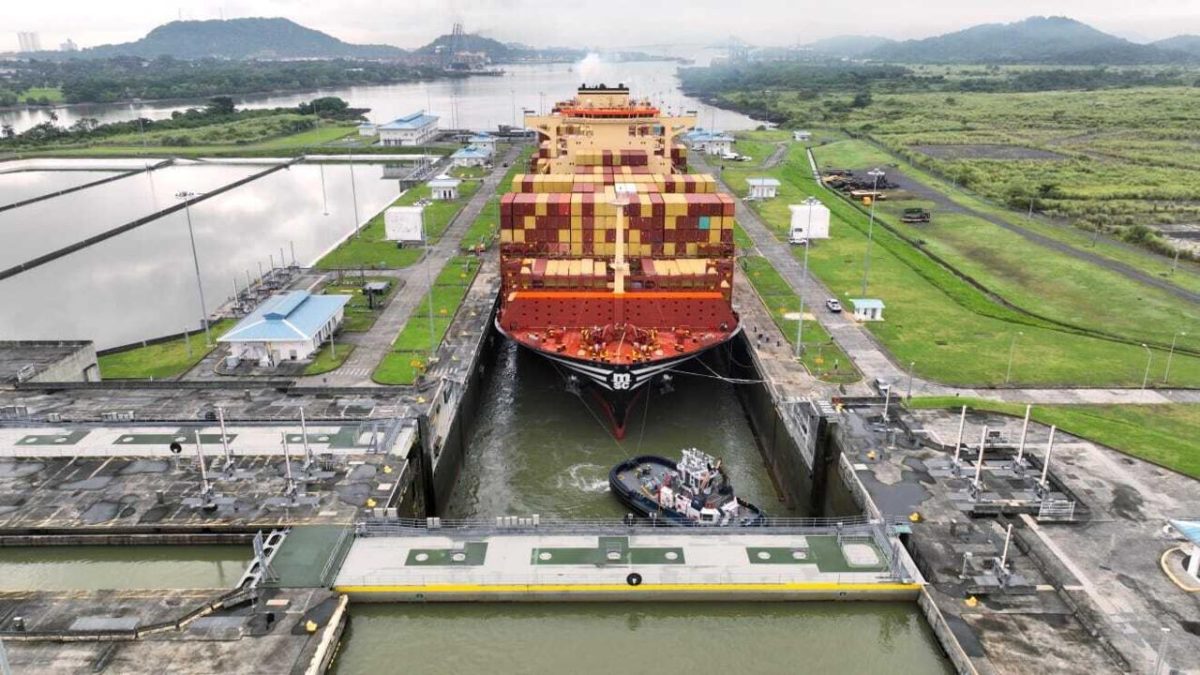MEXICO CITY, (Reuters) – Panamanian President Jose Raul Mulino reaffirmed the country’s sovereignty over the Panama canal today after U.S. President-elect Donald Trump threatened to retake the canal.
“Every square meter of the Panama canal and the surrounding area belongs to Panama and will continue belonging so,” Mulino said in a recorded statement released on X, adding that Panama’s sovereignty and independence are non-negotiable.
Speaking to a crowd of supporters in Arizona on Sunday, Trump also said he would not let the canal fall into the “wrong hands,” warning of potential Chinese influence on the passage.
China does not control or administer the canal, but a subsidiary of Hong Kong-based CK Hutchison Holdings 0001.HK has long managed two ports located on the Caribbean and Pacific entrances to the canal.
The president-elect’s comments came hours after he leveled a similar threat against Panama in a post on Truth Social on Saturday night.
“Has anyone ever heard of the Panama Canal?” Trump said on Sunday at AmericaFest, an annual event organized by Turning Point, an allied conservative group. “Because we’re being ripped off at the Panama Canal like we’re being ripped off everywhere else.”
Trump’s comments were an exceedingly rare example of a U.S. leader saying he could push a sovereign country to hand over territory. It also underlines an expected shift in U.S. diplomacy under Trump, who has not historically shied away from threatening allies and using bellicose rhetoric when dealing with counterparts.
“The fees being charged by Panama are ridiculous, highly unfair,” Trump said.
“It was given to Panama and the people of Panama, but it has provisions. You get to treat us fairly, and they haven’t treated us fairly. If the principles, both moral and legal, of this magnanimous gesture of giving are not followed, then we will demand that the Panama Canal be returned to us, in full, quickly and without question.”
In a recorded message released by Panama’s President Mulino on Sunday afternoon, the nation’s leader said that Panama’s independence was non-negotiable and that China had no influence on the canal’s administration. He also defended the passage rates Panama charged, saying they were not set “on a whim”.
“Every square meter of the Panama Canal and the surrounding area belongs to Panama and will continue belonging (to Panama),” Mulino said in the statement, which was released on X.
Several other Panamanian politicians, including members of the opposition, also took to social media to criticize Trump’s statements.
The United States largely built the canal and administered territory surrounding the passage for decades. But the United States and Panama signed a pair of accords in 1977 that paved the way for the canal’s return to full Panamanian control. The United States handed over control of the passage in 1999 after a period of joint administration.
The waterway, which allows up to 14,000 ships to cross per year, accounts for 2.5% of global seaborne trade and is critical to U.S. imports of autos and commercial goods by container ships from Asia, and for U.S. exports of commodities, including liquefied natural gas.
It is not clear how Trump would seek to regain control over the canal, and he would have no recourse under international law if he decided to make a play for the passage.
This is not the first time Trump has openly considered territorial expansion.
In recent weeks, he has repeatedly mused about turning Canada into a U.S. state, though it is unclear how serious he is about the matter. During his 2017-2021 term, Trump expressed interest in buying Greenland, an autonomous territory of Denmark. He was publicly rebuffed by Danish authorities before any conversations could take place.

